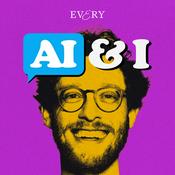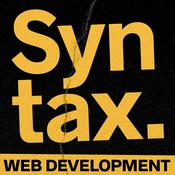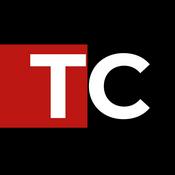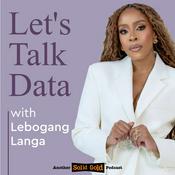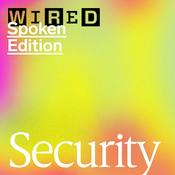10 episodes
- Public procurement sits at the heart of how services reach people in South Africa and accounts for roughly 12 percent of annual GDP. When procurement rules are weak or poorly enforced, the cost is felt in everyday life, through wasted public funds, delayed delivery, and communities left without the services they rely on.
In this first episode of our public procurement series, Rashaad Dadoo speaks with Sam Sole from amaBhungane and LRC candidate attorney Claire Rankin, who is closely involved in our procurement work. Together, they unpack what public procurement is, why transparency matters, and what the new Public Procurement Act could mean for accountability and service delivery.
amaBhungane has spent years investigating procurement related corruption, and has also advocated for stronger, mandatory transparency during the public participation process around the Act. This conversation looks at what is at stake when procurement fails, and why getting it right matters for constitutional promises to become lived realities.
#PublicProcurement #SouthAfrica #Accountability #Transparency #ServiceDelivery #Governance - This podcast episode unpacks our Late Birth Registration Backlog case. Host Claire Rakin speaks with LRC attorney Cecile about why birth registration matters, what counts as late registration, and how delays at Home Affairs are shutting children out of school, health care and social services.
We represent the Children’s Institute together with eight individual applicants. The case asks the Court to address systemic delays, set fair and workable time frames, and ensure a process that recognises the realities many families face, including rural births, cultural practices, and parents who do not yet have documents. The Constitution protects every child’s right to a name and a nationality. Paperwork should not stand in the way of a child’s future.
This conversation explains the law in plain language, shares lived experiences from our clients, and sets out the relief we are seeking.
#LateBirthRegistration #ChildRights #SouthAfrica #HomeAffairs #BirthCertificate #LegalResourcesCentre #Podcast #PublicInterestLaw - Tech abuse is here, and it is hitting the most marginalised first. In this episode of Legal Resources Radio, digital-rights advocate Jaimee Kokonya from Access Now in Nairobi helps us unpack the many faces of tech-facilitated gender-based violence (TFGBV). We discuss how doxxing, deep-fake pornography, location-tracking spyware and coordinated harassment campaigns are being deployed against women, LGBTQIA+ people and migrants across East and Southern Africa.
Drawing on Access Now’s “Rainbow Burning” report, Jaimee explains why online attacks on queer and migrant communities have surged and how queer-phobia and xenophobia reinforce one another. We examine cases where Ugandan authorities have used social-media platforms and dating apps to entrap LGBTQIA+ people, and we trace the global networks fuelling anti-rights movements online. The conversation then turns to survival: device-hardening basics, smarter privacy settings, threat-mapping and the free digital-security helpline run by Access Now.
Finally, we explore the legal and policy gaps that let TFGBV flourish, the responsibilities of social-media companies, and the kinds of court action and regulation that could hold both perpetrators and platforms to account. Whether you are an activist, a developer or simply concerned about your own digital footprint, this episode offers clear analysis and practical tools to help protect yourself and your community.
Watch, share and stay safe.
Access Now Digital-Security Helpline: https://www.accessnow.org/helpline/Rainbow Burning report: https://www.accessnow.org/rainbow-burning/
This work was carried out in the context of the Africa Digital Rights Fund with support from the Collaboration on International ICT Policy for East and Southern Africa (CIPESA). - The State Capture and Beyond (SCAB) campaign has released the first episode of the Capture This! podcast series. Titled “Shallow Justice,” the first episode draws on the recently published Water Justice report to highlight the government’s failure to provide effective access to water. Through inaction and the effects of state capture, many communities have extremely limited access to this essential resource, relying on leaking pipes and sporadic water tankers.
Hosted by Tsogo Kupa (HRMT) and Eldonna Muhwava (LRC), the podcast presents a picture of the water crisis and how it affects people’s lives. The podcast presents the voices of individuals from communities struggling with water access while also discussing water rights with experts, including Ferial Adams, Koni Benson, Dale McKinley, and Ingrid Bester.
State Capture and Beyond (SCAB) is a collaboration between Brot für die Welt (Bread for the World), the Human Rights Media Trust (HRMT), and the Legal Resources Centre (LRC) with funding from the European Union. The contents of this document are the sole responsibility of the Human Rights Media Trust and can, under no circumstances, be regarded as reflecting the position of the European Union. - In January 2025, President Cyril Ramaphosa signed the Expropriation Act into law. This Act is an effort to align expropriation legislation with section 25 of the Constitution and to replace the outdated 1975 Expropriation Act, which was promulgated long before South Africa’s constitutional democracy.
While the power to expropriate land for a public purpose — such as building a dam or a road — is a function held by most governments around the world, the signing of the Expropriation Act has ignited both national and international responses.
The controversy surrounding the Act appears to be driven by the inclusion of “public interest” as a valid reason for expropriation, as well as the possibility that nil compensation may be paid in limited circumstances. Some have described the Act as a race-based law aimed at expropriating farmland held by white owners, or as a mechanism for arbitrary land seizures. This rhetoric has even prompted international reactions, including an executive order by US President Donald Trump to halt all funding to South Africa.
But what is fact, and what is fiction?
In this episode, the Legal Resources Centre (LRC) looks at what the Expropriation Act actually says and attempts to dispel some of the myths surrounding it. The podcast seeks to provide a balanced and accurate analysis of the powers granted to the state under the Act, aiming to combat the misinformation that has shaped much of the public response.
Join us as LRC’s Cecile van Schalkwyk breaks down the facts, clarifies misconceptions, and brings expert insight into one of the most hotly debated legislative developments in South Africa.
More Technology podcasts
Trending Technology podcasts
About Legal Resources Radio
In a world increasingly shaped by technology, the Legal Resources Centre's Democratising Big Tech dives into critical conversations at the intersection of technology, law, and human rights. From the shadowy underbelly of misinformation and disinformation to the pervasive threats of surveillance, hacking, and cybersecurity, this initiative unpacks the pressing issues that impact communities worldwide.
We explore topics like:
- The ethical and legal implications of surveillance technology and spyware.
- How misinformation and disinformation campaigns influence elections, media, and society.
- The systemic challenges of online discrimination, sexism, and xenophobia.
- The balance between privacy rights and national security in the digital age.
Through expert interviews, real-life stories, and legal insights, Democratising Big Tech aims to shed light on how individuals and communities can navigate, challenge, and transform the digital revolution to ensure accountability, transparency, and equity in Big Tech.
Join us to unpack the big questions surrounding Big Tech and chart a path toward a more just, equitable digital future.
Podcast websiteListen to Legal Resources Radio, Lex Fridman Podcast and many other podcasts from around the world with the radio.net app
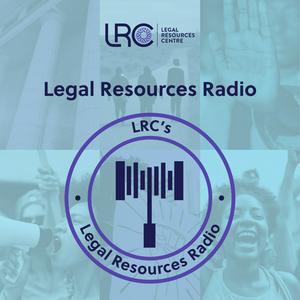
Get the free radio.net app
- Stations and podcasts to bookmark
- Stream via Wi-Fi or Bluetooth
- Supports Carplay & Android Auto
- Many other app features
Get the free radio.net app
- Stations and podcasts to bookmark
- Stream via Wi-Fi or Bluetooth
- Supports Carplay & Android Auto
- Many other app features


Legal Resources Radio
Scan code,
download the app,
start listening.
download the app,
start listening.












